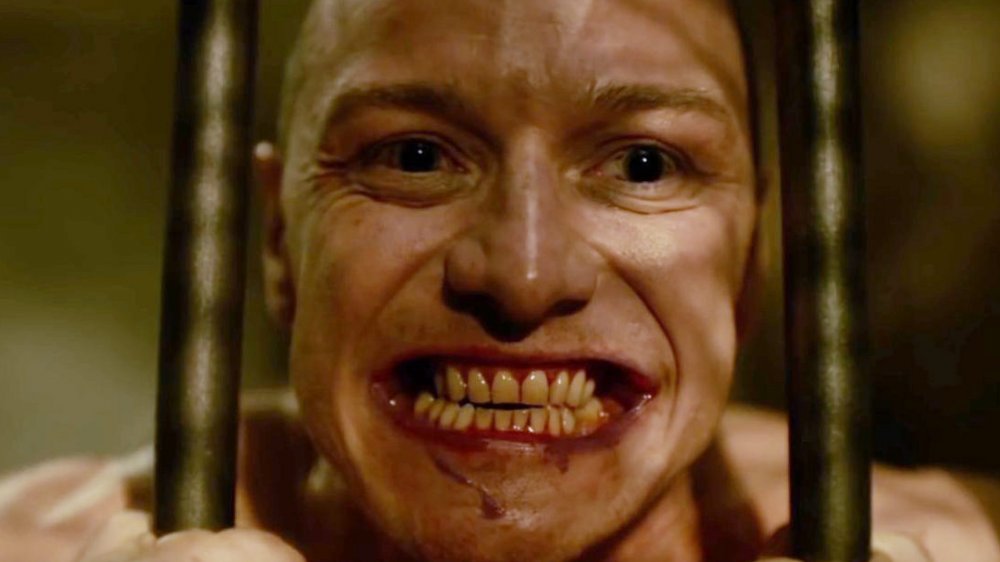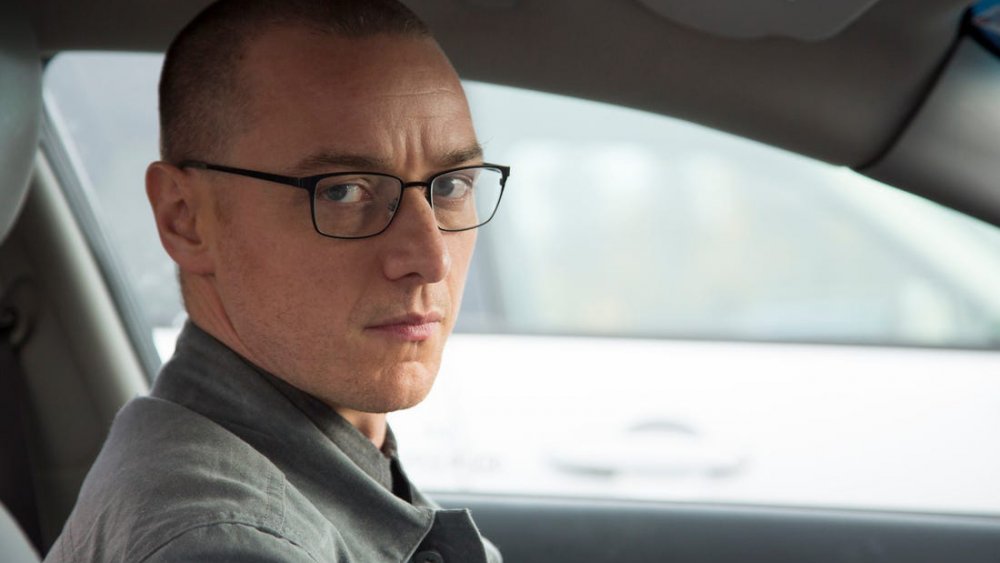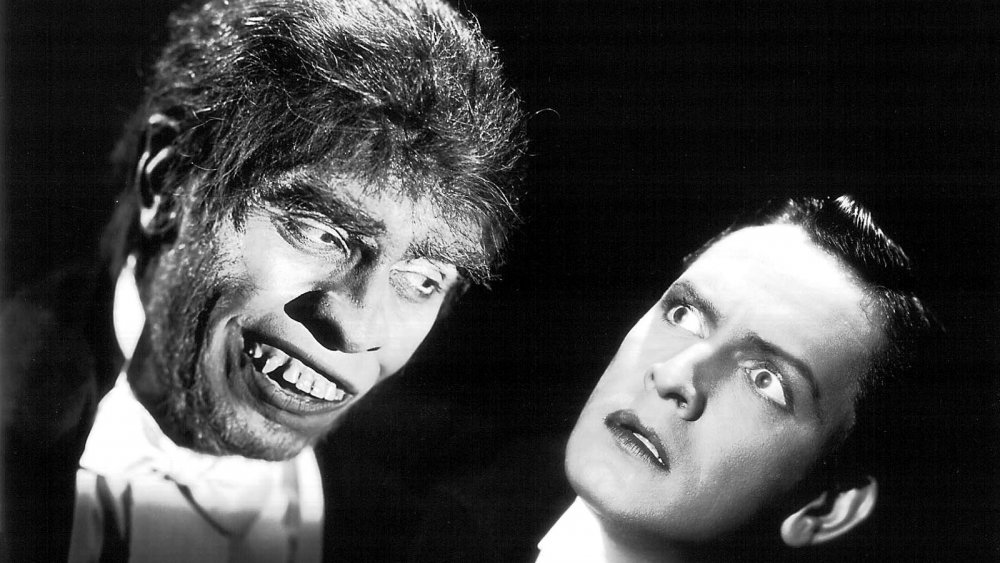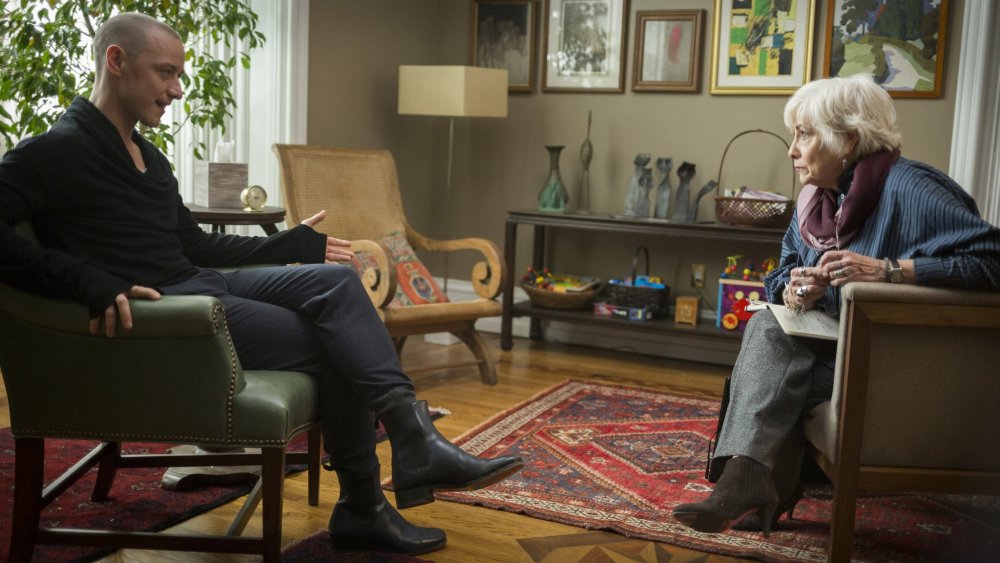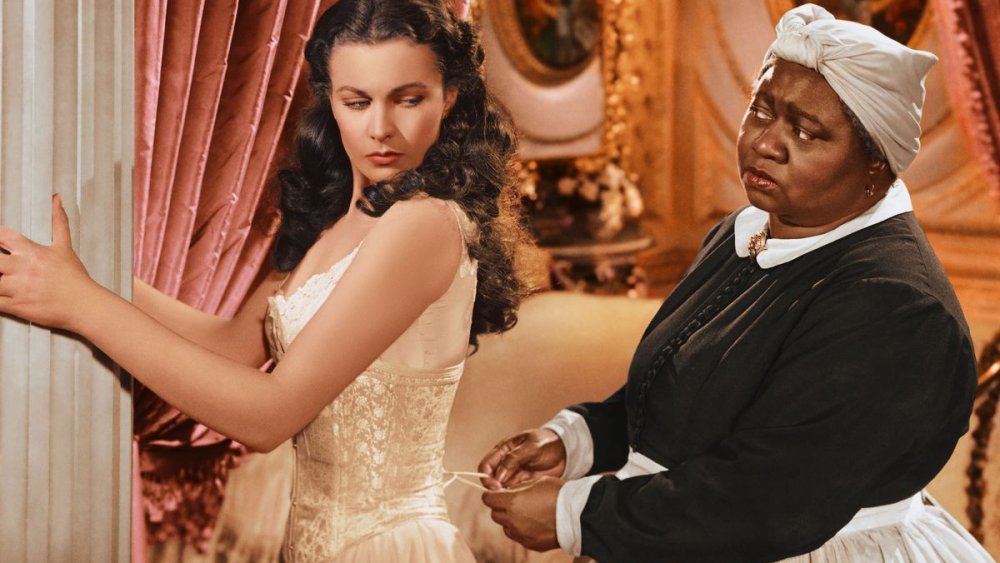The Outrage Over Split Keeps Growing And It Won't Stop
In 2017, M. Night Shyamalan shocked audiences with Split. What seemed to be another small, horror indie on Shyamalan's path to cinematic redemption was actually much, much more. A little historical context: After a string of successes, larger-budget pictures like The Last Airbender and After Earth had done the director no favors in the early 2010s, but 2015's The Visit was moving the needle back in the right direction.
Enter Split, a movie that both entertained and also revealed itself, in its final moments, to be a secret sequel to Shyamalan's 2000 hit Unbreakable. Unbreakable was the director's dark-horse follow-up to the box-office smash The Sixth Sense. Since Unbreakable was a superhero origin movie, it made sense that it would get a sequel, as most successful superhero movies do — but it had been over 15 years, so Split's connection with Unbreakable was a legit mic drop.
Unfortunately, Split's success wasn't the only thing moviegoers were discussing about it. Split's star (and villain), played by James McAvoy, is a person with split personalities — hence the name of the movie. Since Dissociative Identity Disorder (DID) is a real condition, the question was almost immediately raised whether it's appropriate to portray someone like that as a monster.
Now, conversation has heated up once more, with the outrage over Split continuing in a big way.
A new campaign to #GetSplitOffNetflix
On June 23, 2020, the hashtag #GetSplitOffNetflix, designed to remove the film from Netflix's streaming service, bubbled up on Twitter. Although Split isn't, as of this writing, streaming on Netflix in the United States, it is available to watch on Netflix in countries including Canada, China, Australia, England, Ireland, Wales, New Zealand, Brazil, Spain, Italy, Mexico, and Russia. A corresponding Change.org petition to have Netflix remove Split from its streaming libraries for those countries has exceeded its 1,500-signature goal.
"The issue with these depictions," explains the petition, "especially with ones as violent as Split, is that they act as many people's first, and often only exposure to people with dissociative identity disorder. Endless stories pour from the DID community of stigma that this film alone has created within their lives; people asking systems 'which alter is the beast' or 'are any of them going to hurt me' are direct influences of the lessons that these depictions force into the minds of those uneducated about dissociative disorders."
One of the core elements of the film is that McAvoy's character has an evil alter with super powers. That, in addition to the other issues raised upon the film's initial release, are part of what inspired this latest hashtag and petition.
Split personality and a history of fictional violence
The idea of a person with more than one personality has interested folks enough to inspire fictional dramatizations about the topic for over a century. The Strange Case of Dr. Jekyll and Mr. Hyde dates all the way back to Robert Louis Stevenson's gothic novella, first published in 1886.
Horror movies, specifically, have tackled the topic of split personalities with great success. Alfred Hitchcock's now-famous attempt at low-budget horror, Psycho, featured a man, Norman Bates (Anthony Perkins), who kills because he's taken over by the voice of his dead mother.
What movies rarely do is portray DID with any type of accuracy. Even the 1976 miniseries Sybil starring Sally Field, which was supposed to be based on a real case, turned out to be a complete fiction (via NPR).
Doctors' initial response to Split in 2017
Shortly after Split's release, articles were released in which professional experts weighed in on the consequences of portraying DID both incorrectly and violently.
Speaking with Healthline, clinical psychologist Dr. Peter Barach explained how high-risk DID patients are, saying, "A large percentage of people with DID have made potentially lethal attempts to kill themselves." Real people with DID are rarely violent to others, but the stress of feeling isolated by a rare condition can lead them to self-harm. Misrepresentation in films like Split, it seems, can add to that stress.
The clinical psychologist to whom Shyamalan reached out prior to creating Split, Bethany Brand, was also frustrated with the results. According to CNN Health, Brand wrote an email to Shyamalan, saying, "The trailer for Split is causing outrage among trauma and general therapists. Do you plan to do anything to help the patients you are portraying as dangerous?" Shyamalan's response was, "When the film opens we will work ... together and raise awareness."
Once Split was in front of audiences and Shyamalan was asked about concerns people had for real-life DID patients, however, the director seemed unconcerned. In an interview with Yahoo! Movies, Shyamalan said, "We've had no issues from people that have seen the finished film, just zero."
Ultimately, Split garnered over $278 million at the global box office and spawned a third film, Glass. But the story of Split and people's concern with its subject matter clearly hasn't ended there, as evidenced by the #GetSplitOffNetflix campaign.
Reconsidering what to stream and how to stream it
Demands like the ones to have Split removed from Netflix don't exist in a vacuum, and Split is hardly alone in being reconsidered. After much debate, HBO returned Gone with the Wind to its streaming service HBO Max, along with a four-minute introduction explaining the film in historical context.
There are many other examples of streaming services rethinking what they release. For example, UKTV temporarily removed the Fawlty Towers episode "The Germans" because of its insensitive treatment of World War II. The company announced that it would be reinstating "The Germans" with warnings that the episode features "potentially offensive content and language" (via The Guardian). Tina Fey has also requested that episodes of her hit show 30 Rock featuring blackface be removed from streaming.
Conversations continue as to how best to tackle media that people find to be inappropriate, but it's clear that the efforts to remove Split from Netflix (or any other streaming service) are rooted in that movement, and that it's a movement that isn't going anywhere any time soon.
